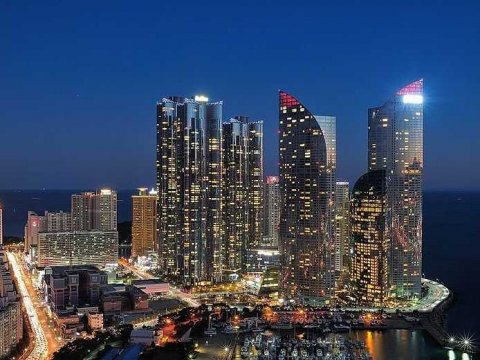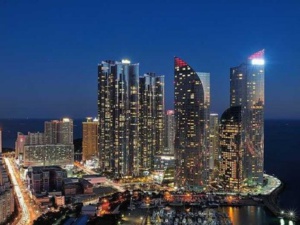Only in 2014, businesspeople invested $ 38.9 billion within 1357 transactions, up from $ 9.4 billion a year earlier, according to research agency Aranca.
Analysts point out that the region has a huge number of talented engineers who come from such schools as the University of Hong Kong, or the Indian Institute of Science in Bangalore. Government support also plays a key role.
The leading sectors of the Asia-Pacific region are technology and e-commerce, accounting for nearly 27% of investments, as of last year.
Among the noteworthy startups: Devsisters, a South Korean developer of games for mobile phones, Hi-Target Digital Cloud, a Chinese manufacturer specializing in 3D laser applications.
However, a large proportion of infrastructure in the region is still underdeveloped, while investments are often associated with high risks. For example, it’s obvious that a startup in Kuala Lumpur is more risky than, say, in Silicon Valley.
Compass, a research company in San Francisco, gathered top 20 global ecosystem for startups. The rating was based on experience, number of successful market entries, investments, market conditions and other parameters.
Here are the top centers for start-ups in this list.
1. Singapore
The city-state of Singapore has been named the best ecosystem for creation of start-ups in the Asia-Pacific region. There are about 3,600 start-ups in areas such as e-commerce, games and social networks.
It is also one of the best places in the world to become a millionaire - in this indicator, Singapore overtook Hong Kong.
Among other things, Singapore is a hub for Asian headquarters of giants such as Google, Uber and Facebook.
Since Singapore has a very convenient location - between India and China, there is a very high potential in terms of features to market, and almost half of consumers (49%) of startups are living abroad.
It is worth noting that almost 9 of 10 Singaporeans have access to smartphones, which provides ample opportunities for e-commerce.
2. Bangalore
There are almost 4,900 active startups, with $ 2.3 billion investment. Bangalore is the second city to create a start-up in Asia.
There is a company like Flipkart, an e-commerce site launched in 2007. Currently, the company's value is estimated at $ 15 billion.
Bangalore differs from other cities by its high level of Internet use. Analysts forecast that India will have 500 million Internet users by 2017.
However, this city, just like much of India, suffers from high levels of poverty. Nearly 22% of India's population currently live on less than $ 1.25 a day.
3. Hong Kong
There are approximately 2000 start-ups at various stages of implementation. At the same time, the proximity of Hong Kong to mainland China gives significant advantages. Startups also get support from the Hong Kong Science and Technology Parks and Cyberport.
As a major international financial center with GDP of almost 0.47% of the global economy, Hong Kong is a center of growth for financial technology companies (about 52 in 2015).
Historically, Hong Kong has always been very active in the search for new business technologies and their deployment, use and integration of talent and resources, especially in the fields of industry, trade and services.
4. Kuala Lumpur
Malaysian Kuala Lumpur City, inhabited by slightly less than 2 million people, is one of the most important hubs for start-up creation in the region.
The city's economy may be less than, say, that of Delhi, but proximity to South East Asian markets is a significant advantage that makes this city an attractive center to build business.
In addition, Kuala Lumpur enjoys very strong support of the government. In 2013, Malaysian Prime Minister Najib Razak created MaGIC, one of the largest start-up accelerators in the Asia-Pacific region.
Analysts point out that the region has a huge number of talented engineers who come from such schools as the University of Hong Kong, or the Indian Institute of Science in Bangalore. Government support also plays a key role.
The leading sectors of the Asia-Pacific region are technology and e-commerce, accounting for nearly 27% of investments, as of last year.
Among the noteworthy startups: Devsisters, a South Korean developer of games for mobile phones, Hi-Target Digital Cloud, a Chinese manufacturer specializing in 3D laser applications.
However, a large proportion of infrastructure in the region is still underdeveloped, while investments are often associated with high risks. For example, it’s obvious that a startup in Kuala Lumpur is more risky than, say, in Silicon Valley.
Compass, a research company in San Francisco, gathered top 20 global ecosystem for startups. The rating was based on experience, number of successful market entries, investments, market conditions and other parameters.
Here are the top centers for start-ups in this list.
1. Singapore
The city-state of Singapore has been named the best ecosystem for creation of start-ups in the Asia-Pacific region. There are about 3,600 start-ups in areas such as e-commerce, games and social networks.
It is also one of the best places in the world to become a millionaire - in this indicator, Singapore overtook Hong Kong.
Among other things, Singapore is a hub for Asian headquarters of giants such as Google, Uber and Facebook.
Since Singapore has a very convenient location - between India and China, there is a very high potential in terms of features to market, and almost half of consumers (49%) of startups are living abroad.
It is worth noting that almost 9 of 10 Singaporeans have access to smartphones, which provides ample opportunities for e-commerce.
2. Bangalore
There are almost 4,900 active startups, with $ 2.3 billion investment. Bangalore is the second city to create a start-up in Asia.
There is a company like Flipkart, an e-commerce site launched in 2007. Currently, the company's value is estimated at $ 15 billion.
Bangalore differs from other cities by its high level of Internet use. Analysts forecast that India will have 500 million Internet users by 2017.
However, this city, just like much of India, suffers from high levels of poverty. Nearly 22% of India's population currently live on less than $ 1.25 a day.
3. Hong Kong
There are approximately 2000 start-ups at various stages of implementation. At the same time, the proximity of Hong Kong to mainland China gives significant advantages. Startups also get support from the Hong Kong Science and Technology Parks and Cyberport.
As a major international financial center with GDP of almost 0.47% of the global economy, Hong Kong is a center of growth for financial technology companies (about 52 in 2015).
Historically, Hong Kong has always been very active in the search for new business technologies and their deployment, use and integration of talent and resources, especially in the fields of industry, trade and services.
4. Kuala Lumpur
Malaysian Kuala Lumpur City, inhabited by slightly less than 2 million people, is one of the most important hubs for start-up creation in the region.
The city's economy may be less than, say, that of Delhi, but proximity to South East Asian markets is a significant advantage that makes this city an attractive center to build business.
In addition, Kuala Lumpur enjoys very strong support of the government. In 2013, Malaysian Prime Minister Najib Razak created MaGIC, one of the largest start-up accelerators in the Asia-Pacific region.






